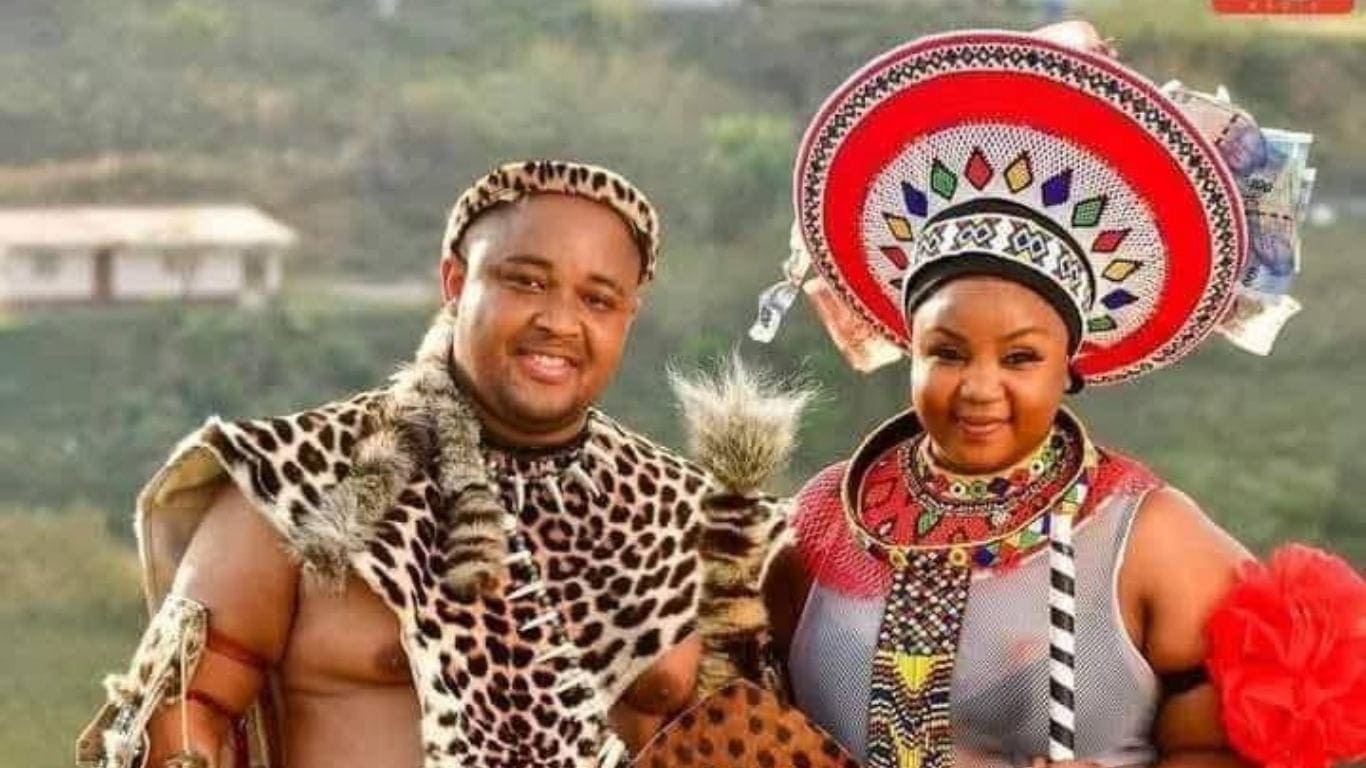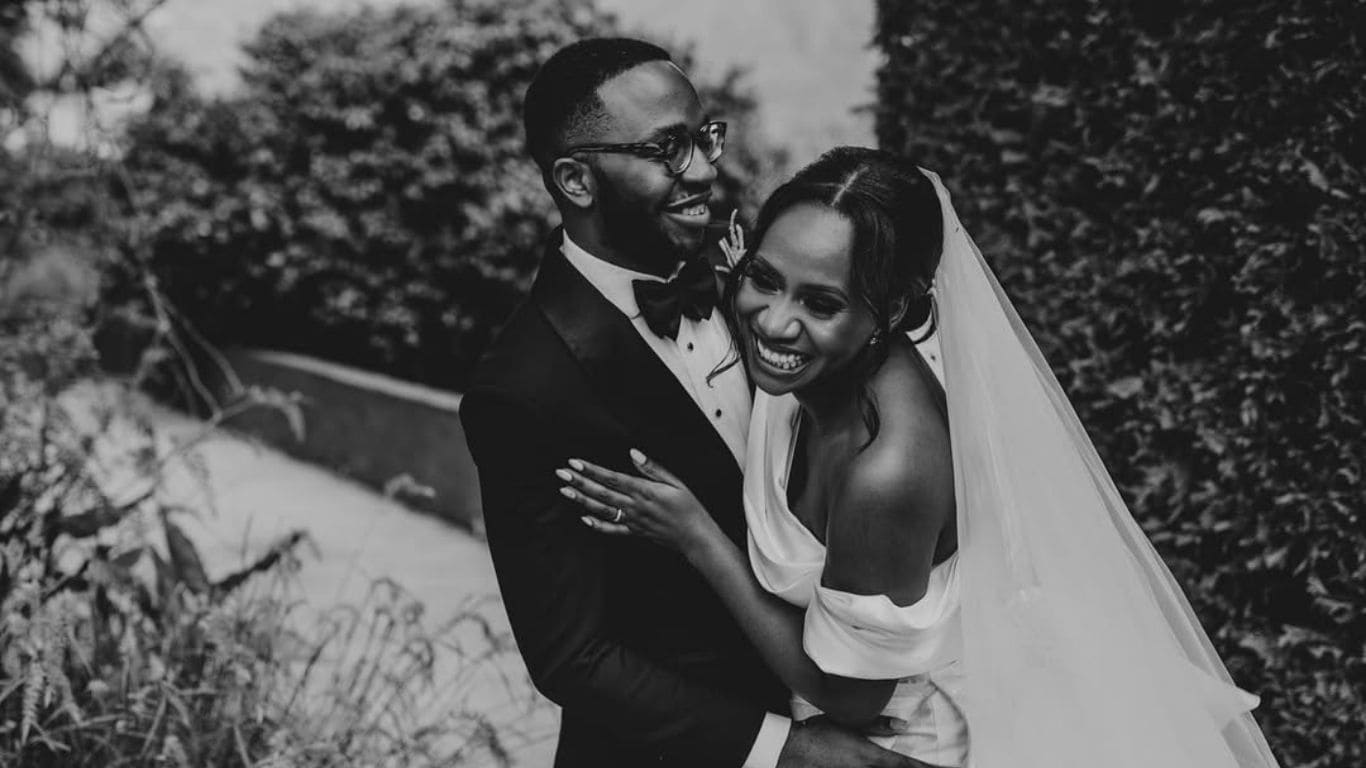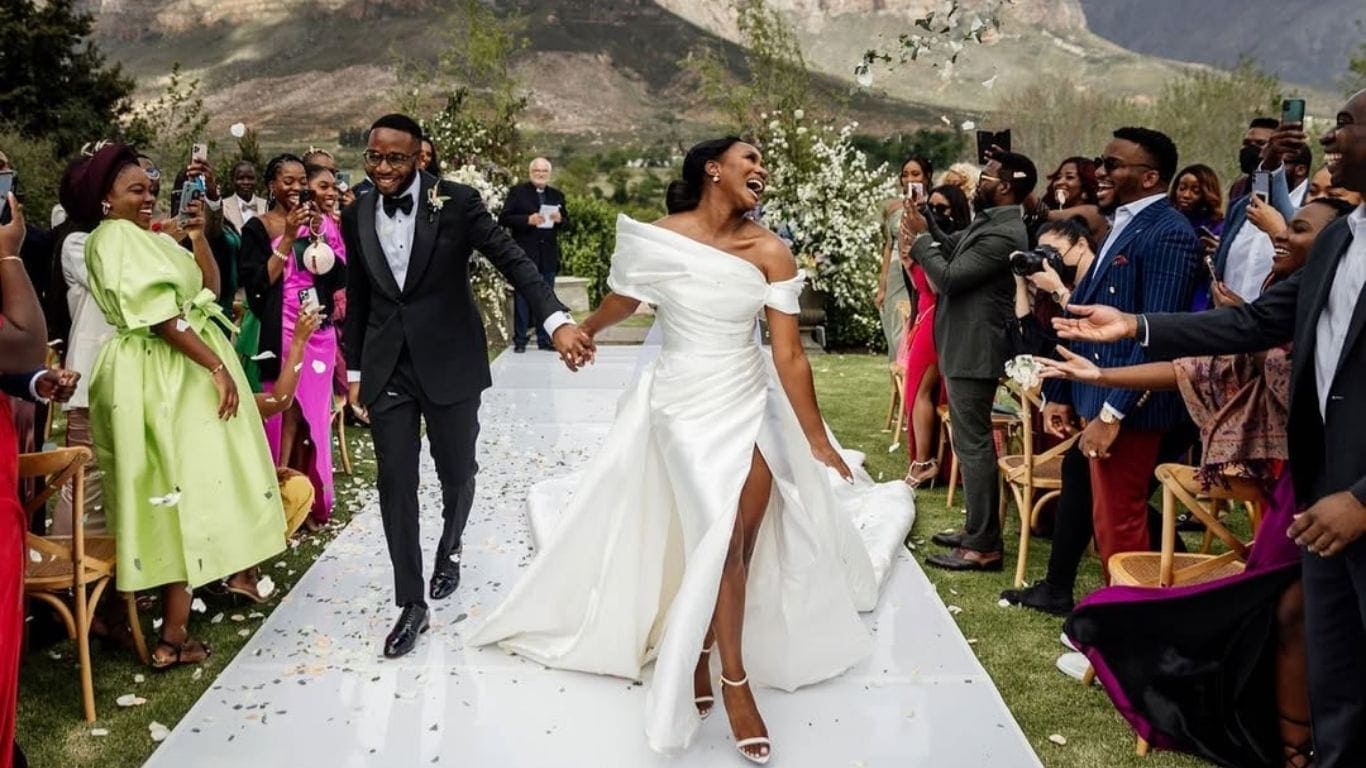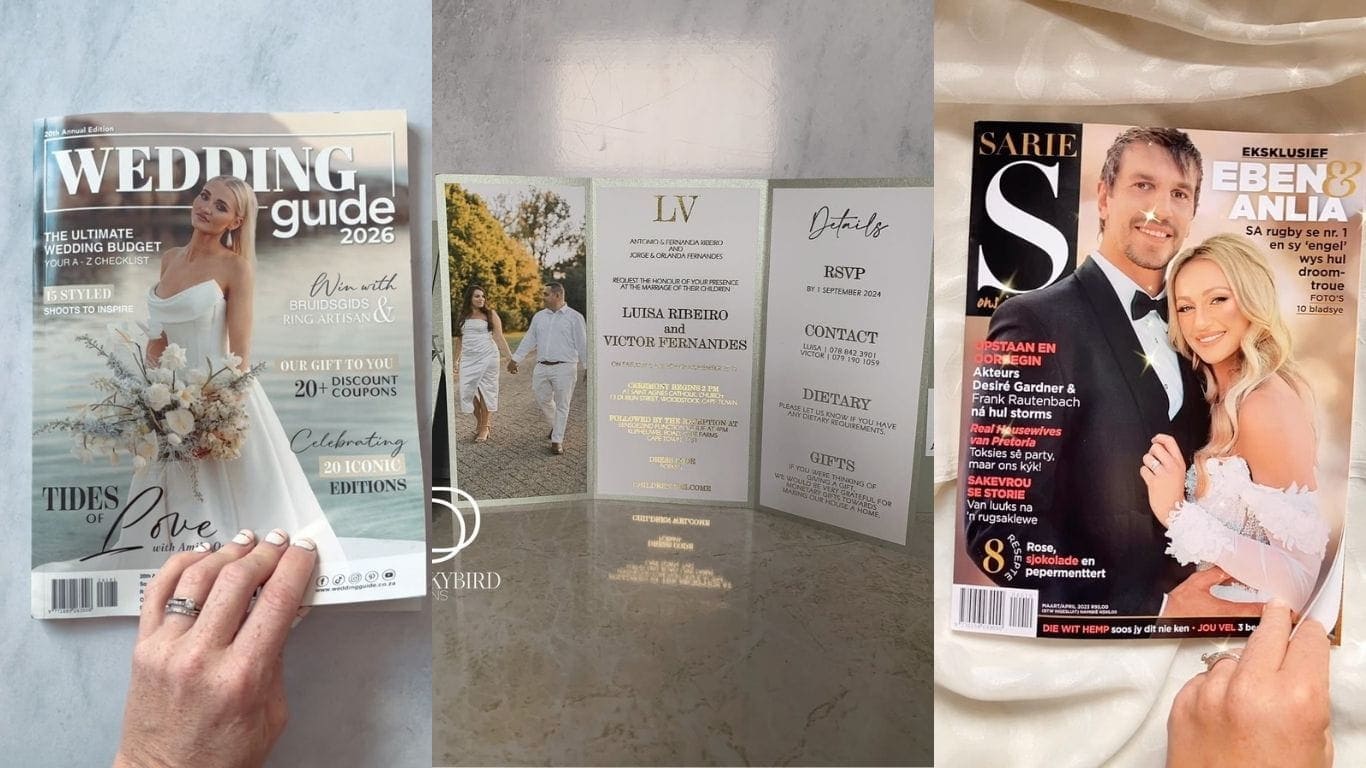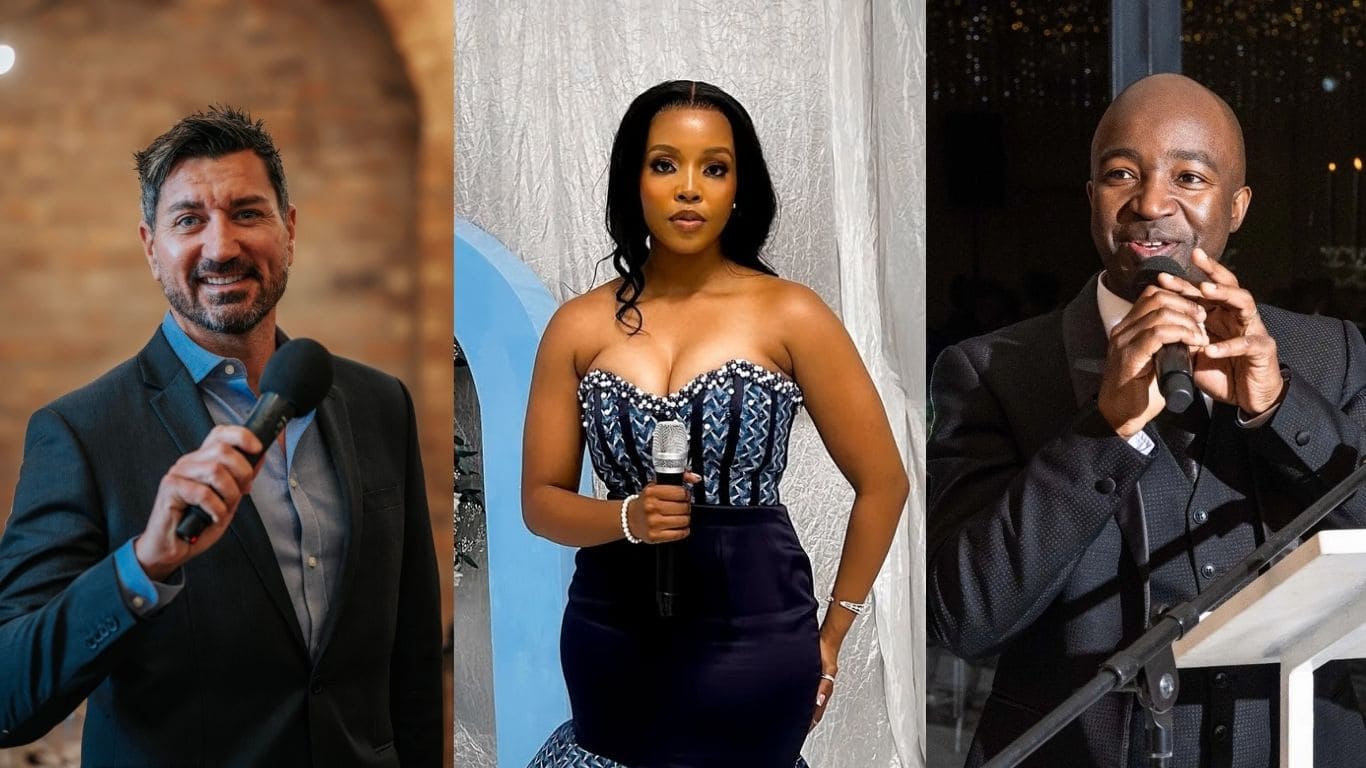Want to know what the bride, groom, and their families pay for at a wedding ceremony in South Africa? Keep reading for more.
Marriage is the only institution recognised in the Bible and as most Africans are Christians, it means a lot to them to have spouses.
There are countless reasons one would want to choose South Africa as their wedding destination. One of which is the fact that the Rainbow Nation has a picturesque background and also gives couples the chance to exchange vows in some of the world’s most stunning landscapes. Additionally, South Africa offers a diverse range of wedding venues, from luxurious vineyards nestled in rolling hills to pristine beaches lapped by the Indian and Atlantic oceans.
In our previous articles, JanaTribe has touched on every essential element of weddings in SA, from ways couples can budget to meet their cost expectations in order not to break the bank to ways couples and their guests can stylishly arrive at the venue, different forms of entertainment ideas, catering trends, and photography and videography ideas.
However, many young people thinking of getting married have many questions they want answers to before tying the knot. Some of these include the cost of weddings in South Africa and who even pays for them.
In this article, JanaTribe will share with you what the bride, groom, and their families pay, but before that, let’s get a glimpse into what a typical South African wedding looks like.

What is a wedding in South Africa like?
December is wedding season in South Africa, with flashy German cars blitzing through dusty township streets and families gearing up for traditional economic negotiations that often precede the ceremony.
A wedding in South Africa is a vibrant and diverse celebration that reflects the country’s rich cultural heritage and modern influences. Traditionally, South African weddings were deeply rooted in cultural customs and rituals, with ceremonies varying greatly depending on the ethnic background of the couple. For example, in some communities, weddings involved elaborate negotiations between the families of the bride and groom, while in others, rituals such as the breaking of a pot or the sharing of traditional foods symbolized the union of two families.
Over time, South African weddings have evolved to embrace a blend of old traditions and contemporary elements. While cultural customs still play a significant role in many weddings, couples today are also incorporating modern trends and personal touches into their ceremonies. For instance, traditional attire such as Zulu or Xhosa bridal attire may be paired with contemporary wedding accessories, and ceremonies may include a mix of traditional rituals and modern vows.
Today, South African weddings are celebrated in a variety of settings, from grand ballrooms and luxury estates to rustic barns and outdoor gardens. Couples have the freedom to choose a venue that reflects their style and preferences, whether they envision a lavish affair or an intimate gathering with close family and friends. Moreover, the rise of destination weddings in South Africa has made it possible for couples from around the world to exchange vows against the backdrop of the country’s breathtaking landscapes and natural beauty.
In terms of ceremonies, South African weddings typically involve a mix of cultural traditions, religious rituals, and personal touches. For example, a Christian wedding may include the exchange of vows, readings from the Bible, and the lighting of a unity candle, while a traditional African wedding may involve the tying of the knot ceremony or the sharing of symbolic gifts. Regardless of the specific customs observed, the underlying theme of love, unity, and celebration is universal.
Overall, a wedding in South Africa is a joyous occasion that celebrates the union of two individuals and their families. Whether steeped in age-old traditions or infused with modern flair, South African weddings are a testament to the country’s diversity, creativity, and spirit of love and togetherness.

Discussing the financial landscape of a South African wedding
The question of who foots the bill for a South African wedding is multifaceted and often depends on various factors, including cultural traditions, family dynamics, and the financial capabilities of the families involved.
Today’s couples must do their best to decide how they want their weddings to be and set their budget. “Budget should be the first discussion couples have together and with their families, otherwise, you are planning in a bubble that may not be your reality,, says Jove Meyer, a wedding planner. “I know it is not fun or cute to talk about money, but it is super important, as it informs all of the other decisions around your wedding.,
Traditionally, the financial responsibility was shouldered by the bride’s family, covering expenses such as the ceremony, decorations, and the bride’s attire. The groom’s family, on the other hand, assumed responsibility for the engagement and bride price.
However, as South African weddings have modernized, the lines of financial responsibility have blurred, per a publication on SA Wedding. Many couples now opt for a more collaborative approach, with both families contributing to the overall expenses. The desire for financial independence has also led some couples to take on a more significant role in financing their weddings, sharing the financial burden with their families.
“The heteronormative gender roles for who pays for a wedding are changing,, says Meyer. “They are much more modern and equal, taking into account both families’ resources, guest lists, expectations, and the wedding location, as well as the resources and wants of the couple., For same-sex couples with either no bride or two brides, the rules are not applicable, adds Meyer: “Families must discuss and be open and honest about what is possible for them.,
How much does a wedding in South Africa cost today?
The cost of a wedding ceremony in South Africa varies. Due to the differences in rates among vendors, there is no fixed amount.
According to recent estimates by Top Reviews, the average cost of a wedding in South Africa (for a basic/simple ceremony with a small guest list) ranges from R70,000 to R150,000.
For couples with a guest size of 200 or more (mostly the luxury types of events), the budget is around R250,000, per data collection by JanaTribe.
Per a publication on Pink-book, a wedding in a destination in South Africa can be less the amount it will cost for a dream event in one’s comfort home. With the help of a wedding coordinator, Tracy Brandford of Trunk Events, an elegant wedding with all the latest decor and trends (including venue, photos, videography, food, hair, makeup, etc.) will cost couples around R250,000.
“When it comes to the luxury, high-end budget weddings, some international clients are prepared to spend amounts of R850 000 and above. But these budgets will all depend on the client’s requirements,” the publication reveals.
Who pays for a South African wedding?
Many people spend a fortune on their entire wedding, from the planning stage to the honeymoon. These costs range from traditional rites to the white wedding.
In the early 1990s, costs were “unfairly, divided; however, modern couples finance their weddings in their own ways. Typical costs include the following:
Traditional wedding
The first cost in a wedding is the “lobola,” or dowry. The lobola demonstrates that the man getting married is capable of taking care of a family and also serves as a token of gratitude to the bride’s family for raising a wonderful woman.
Likhapa Mbatha from the Center for Applied Legal Studies at Johannesburg’s University of the Witwatersrand and secretary for the Movement for Rural Women, a non-profit organization, says the lobola custom is central to African identity. It has long been common throughout southern Africa.
“It is our African way of doing things and still a viable practice,” she said.
The lobola ceremony is a formal process of negotiation between two families in order to come to a mutual agreement on the price. The groom’s family gives a gift, typically cattle, to the family whose daughter is joining their household.
How much is paid for lobola? Lobola costs can vary greatly depending on many factors, including your specific cultural traditions and where you live. It’s clear that there’s no fixed price, the lobola in South Africa can range between R10,000 and R100,000, and can even go up to a whopping R400,000!
But in modern South Africa, where few urbanized families have room for pastures, the calculations move quickly to cash, per a publication by Reuters.
Thabo Seekane, who gave away his daughter, said determining lobola in the old days would not involve current considerations such as the prospective bride’s education level or physical attractiveness.
“It was something that was pre-determined, years in advance by the family,” he said. “The problem with today is the conversion of cattle into cash. This conversion becomes a personal thing and very subjective.”
Several years ago, a Johannesburg businessman reportedly paid some 250,000 rand ($35,100) for the hand of a daughter of Zulu King Goodwill Zwelithini.
Zwelithini himself has repeatedly dipped into the purse to pay lobola, a hazard of following the Zulu custom of taking more than one wife.
White wedding
What does the bride’s family pay for? The bride’s family traditionally pays for the majority of the wedding-related expenses, from the engagement party to the newlyweds’ getaway car.
According to Christin Gomes and Ida Gibson, PhD, of Common Courtesy, these costs have typically included:
- Engagement party
- Wedding planner
- Invitations and day-of-stationery for church and reception
- Photography and Videography
- Venue
- Bride’s and bridesmaids attire (and all accessories, including veil)
- Ceremony and reception floral arrangements, décor, and rentals
- Food and drink
- Wedding cake
- Guest transportation
- Travel and lodging costs for bridesmaids and officiants
- Most other reception expenses
Per TheKnot, the biggest expense that the parents of the bride (traditionally) pay for is the wedding ceremony. The venue, décor, and music are all integral parts of the ceremony
A few costs can also be taken care of by the couple’s friends. If they are super lucky, the maid of honor and bridesmaids host the bridal shower and bachelorette party, the best man and groomsmen host the bachelor party, and friends may throw additional engagement parties or showers.
What does the groom’s family traditionally pay for? The groom’s family has traditionally picked up the tab for fewer wedding items, which have included:
- Marriage license and officiant fee
- Corsages and boutonniéres for family members on both sides
- Lodging for groomsmen
- Rehearsal dinner costs
- Reception alcohol (optional)
- DJ or band (optional)
Rehearsal dinners used to range in size from a small, wedding-party-only occasion to a larger soirée that included half or more of the wedding guests. Now, though, as many couples opt for welcome parties that are open to all of their guests, the groom’s parents aren’t expected to take on the entire cost, MarthaStewart reports.
What does the bride traditionally pay for? In the past, the bride would personally pay for:
- Wedding flowers and gifts for the bridesmaids
- All hair and makeup costs
- Groom’s wedding band
- Groom’s wedding gift
While these expenses are still typically covered by most brides, many modern women also contribute to the overall costs of the ceremony and reception.
What does the groom traditionally pay for? Traditional expectations for the groom’s financial contribution include:
- Engagement and wedding rings
- Marriage license and officiant fee (if not covered by parents)
- Legal expenses (e.g.: antenuptial contract)
- Ceremony expenses (organist, soloist, tips, and any form of entertainment)
- Bride’s and bridesmaids bouquet
- Groomsmen’s boutonniéres and gifts
- Bride’s wedding gift
- Wedding night accommodation and the honeymoon
Ring selection, for instance, is done by the couple, and traditionally, the groom pays for both the bride’s rings while she pays for his. But these days, the couple pays for them all, no two ways about that, Ghanaweddingmarket reports.
Post-wedding trips and honeymoon
Today, couples often share the costs of their post-wedding trip, incorporating honeymoon and wedding spending into their big-picture financial plans.
Conclusion
As South African weddings become more modern and traditional, the journey becomes more than just a cultural ritual; it transforms into a joint effort to create lasting memories. In this evolving landscape of South African weddings, financial responsibility is no longer constrained by rigid traditions but rather reflects a dynamic interplay of cultural heritage and contemporary aspirations. Simply put, the cost is a shared effort among the groom, bride, and their families.
In our previous article, we dived into how much a typical Ghanaian wedding can cost today and outlined the possible reasons it can cost a fortune to get married currently. For a future couple and anyone doing research, read about the cost of a Ghanaian wedding here.


